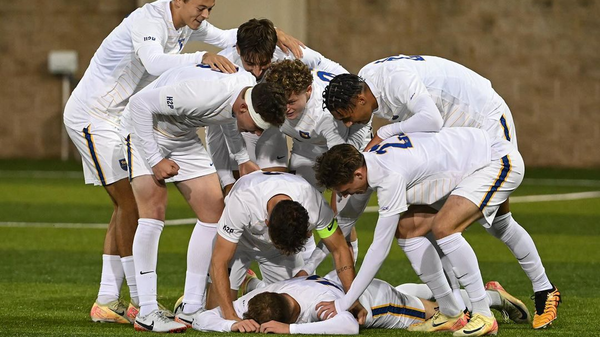

The NCAA Division I Council just dropped a clanger that has gotten athletes and fans debating. The latest change? The Council has approved the transition of the National Letter of Intent (NLI) program into NCAA signing and recruiting rules. And it is happening now. At the same time, the Council’s decisions aren’t final until their meeting closes today. The change has the world of collegiate sports furrowing their brows. One fan demanded, asking, “Can someone (officially) give the reason for this change? What about the collegiate athletics system said that this was the thing to do at this time?”
It is a fair question. It has been nearly 60 years since NLI became the core of how student-athletes and schools made their relationship official. Why mess with that now? The root of the issue lies in the upcoming NCAA v. House case’s settlement. Once the settlement kicks in, schools will be able to pay $20-23 million annually to athletes. So, what will replace the NLI? Financial aid and scholarship agreements will replace the iconic agreement. And the new agreements come with promises of more flexibility. But is that really enough to justify this paradigm shift?
As one fan puts it bluntly, “This transition from the National Letter of Intent to new NCAA signing and recruiting rules marks a major shift in how college athletics will operate.” This change is not about replacing one piece of paper with another. For years, signing an NLI meant that a student-athlete was committed to one school for at least a year. And the penalties to transfer included sitting out a semester. That’s all gone now.
ADVERTISEMENT
Article continues below this ad
In its place come the more flexible signing parameters that have gotten fans questioning its long-term impact. While the NCAA thinks this makes it easier for institutions. Less paperwork, less confusion between NLI rules and NCAA regulations, and a smoother recruiting process. But as one fan pointed out, “What does that mean?” That is, after all, the conundrum! Although the move seems great on paper, many wonder if this means turning college athletics into a celebrated farm system for pro leagues.
The fandom is not holding back their disappointment!
“Who are we kidding here? Let’s stop pretending and just operate like the NFL. D1 schools should just sponsor a semi-pro team, and the kids can go to class free or not at all. There should be no requirement to be a student. It is just a farm team for the NFL anyway,” says one fan.
Harsh, it is, but is it entirely baseless? The NCAA allowing higher payment is also a step that blurs the line of differentiation between amateur and pro status. It comes as no surprise that some are, of course, skeptical.
DI Council approves transition of National Letter of Intent program into NCAA signing and recruiting rules, effective immediately.
Council decisions are not final until meeting concludes later today.
— NCAA News (@NCAA_PR) October 9, 2024
ADVERTISEMENT
Article continues below this ad
Another fan sarcastically came in to say, “Awesome! Athletes be prepared. You are now employees first. Well paid, though. And students second. NCAA is a pro league, and you’ll be treated like pros. Good and bad.”
The good news? The major silver lining here is the change in the kind of money collegiate athletes receive. The bad news, however, is that academics might just have to chuck up the sponge. Balancing academics with athletics can be hard, but what’s going to happen if the stakes and the paychecks are higher?
ADVERTISEMENT
Article continues below this ad
Boiling it down to the crux, another fan wrote, “Just means it’s more like an employment contract with a sign-on bonus.” Another frustrated fan, agreeing, wrote, “Ugh. More chaos. The NCAA is so ineffective. Money grab during the dance and get everything else wrong.” It is hard to argue the claims of chaos.
While many remain frustrated, few are simply heartbroken. “This is sad. I don’t like what D1 sports are becoming.” This move, however, is not entirely monetary. It is also redefining what it means to be a student-athlete in the NCAA. And evidently, not everybody is on board!
Have something to say?
Let the world know your perspective.
ADVERTISEMENT
Debate
Does the NCAA's decision mark the beginning of college sports as a mere NFL farm system?
ADVERTISEMENT
ADVERTISEMENT



What’s your perspective on:
Does the NCAA's decision mark the beginning of college sports as a mere NFL farm system?
Have an interesting take?